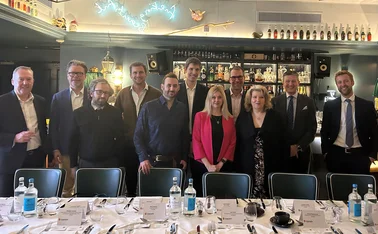
Europe: Aggregation domination

Research suggests that the use of aggregators in Europe is growing but can the continent replicate the price comparison success seen in the UK? Mark Sands investigates.
With the interest in aggregators growing, the European Insurance and Occupational Pensions Authority is looking to exert its influence over the price comparison sphere. A consultation launched by Eiopa in June will close on 23 September, with the goal of providing best practice guidance to comparison websites by the first quarter of 2014.
In particular, Eiopa cited concerns around customers' overreliance on the price of products, rather than the terms and conditions; conflicts of interest from close commercial links between insurers and comparison sites, and the suitability of websites for certain types of products.
Issuing guidance
An Eiopa spokesman told Insurance Insight that its work in the area "should be seen as a complementary guidance to applicable European and national legislations," with no plans for formal regulation.
"In our view it is not necessary to create an independent institution for this purpose," he adds. "The report prepared by Eiopa puts forward good practices for websites that compare insurance products."
Under the Insurance Mediation Directive, price comparison sites which offer the possibility to buy insurance are technically considered intermediaries and are supervised as such in some countries but the role of comparison websites is up for further discussion under the mooted IMD II.
"The report prepared by Eiopa puts forward good practices for websites that compare insurance products." Eiopa
The move is reflective of the growing role of consolidators on the continent. Indeed, UK insurance group BGL, parent of Compare the Market, unveiled its new French brand Les Furets in November last year, at the same time it closed a deal to expand into the Dutch aggregator market.
Director of European insurance comparison Jeremy Moll says that the expansion is reflective of a market that is beginning to take off across the continent. According to Moll, last year, 25% of the French public rejected comparison sites outright, preferring to speak directly to insurers, but estimates that this year that proportion has fallen to 14%.
He adds: "The perception has been that it is not credible, and the products were not comparable to the ones they were buying through their agents. There is a big perception that the reason why it was cheaper was because the level of cover was inferior."
Fast growth
Meanwhile, a recent study by CP Consulting found that Spain and Italy have experienced the fastest European aggregator growth rates in the last two years, while policies brokered by Italian aggregators in the first half of 2013 were up 58% year-on-year.
"Things are taking off," says CP Consulting managing director Carlo Palmieri, pointing to the recent entrance of Google in the car insurance comparison markets of France and Germany. "If someone like Google is putting money behind it then it could go even further."
"The perception has been that it is not credible, and the products were not comparable to the ones they were buying through their agents." Moll
CP Consulting estimates the market for insurance price comparison in Austria, Belgium, France, Germany, Italy, Netherlands, Portugal Spain Sweden and the UK was worth over €600m in 2011 in revenues, a growth of over 20% over the previous year. The largest market is the UK, which alone accounts for about two thirds of total revenues, followed by Germany and France.
According to Eiopa, the precise number of price comparison sites active across continental Europe is difficult to monitor, as sites regularly appear, and disappear, with great speed. Nonetheless, it estimates that the most popular countries for aggregator sites are the Czech Republic, Spain, France, Netherlands and the UK, which all see more than 20 websites in operation. By contrast, there are no price comparison sites operating in Cyprus, Iceland, Liechtenstein, Luxembourg or Slovenia.
Differing landscapes
"Aggregation will definitely grow and take off in time in the rest of Europe," Moll says, adding that the individual challenges of each market are not to be underestimated. "Spain, for example, is relatively aggregator-friendly, but one of the big issues with Germany is that they have this single date of renewal for car insurance. In some ways that puts new entrants off because it's kind of all-or-nothing."
Germany already features a strong competitor in the aggregator marketplace with price comparison mainstay Check 24, which may further discourage new entrants but competition may not be the oly factor that determines success.
Moll explains: "The key challenge which we are overcoming, or will overcome, will be that of people using comparison sites as a research tool, rather than a purchase tool. We are finding that more and more people, almost 30% of French consumers, now use comparison sites to research their insurance. Our job is to make them confident enough to not just research but to buy, as well."
"Things are taking off. If someone like Google is putting money behind it then it could go even further." Palmieri
Although Moll is unable to provide statistics on proportions of visitors that buy their insurance through BGL sites, he concedes the figure is likely "a lot smaller."
Palmieri adds that in Italy, this is a particular challenge with "churn", the rate at which individuals change insurers, in motor insurance believe to be less than 10%.
"In Italy, the numbers of people that use a price comparison site are in the order of 10 to 20 times more than the number people that buy," he says. "A lot of people are looking and they take the quote, go back to their current provider which his mostly a tied agent, and try to get the biggest discount that they can.
Palmieri adds: "If you see that the price differential keeps on increasing because the price keeps coming down, then at some point the current provider will be unable to match and they will switch. That price differential will depend on the country and the segment, of course."
Broker plight
Both Palmieri and Moll downplay the role of personal lines brokers, with the former pointing to a single insurer tied agency as a more common model.
"In a lot of countries you are coming from systems where what there is next to price comparisons is either tied agents or loose broker networks," Palmieri says. "You have a lot of tied agents who will only work for one company. These guys are the ones at risk of losing out, and what some of them are doing in certain countries is trying to offer price comparison. So they move from being tied agents to either multi-tied agents or brokers."
"A lot of people are looking and they take the quote, go back to their current provider which his mostly a tied agent, and try to get the biggest discount that they can." Palmieri
Moll is more conciliatory, but suggests aggregation will only increase in popularity, with the future of the personal lines broker dependent on providing a better quality of service than a website.
He concludes "There will always be a place for brokers in that service space, but we are about much more mass market business," he says.
Only users who have a paid subscription or are part of a corporate subscription are able to print or copy content.
To access these options, along with all other subscription benefits, please contact info@postonline.co.uk or view our subscription options here: http://subscriptions.postonline.co.uk/subscribe
You are currently unable to print this content. Please contact info@postonline.co.uk to find out more.
You are currently unable to copy this content. Please contact info@postonline.co.uk to find out more.
Copyright Infopro Digital Limited. All rights reserved.
You may share this content using our article tools. Printing this content is for the sole use of the Authorised User (named subscriber), as outlined in our terms and conditions - https://www.infopro-insight.com/terms-conditions/insight-subscriptions/
If you would like to purchase additional rights please email info@postonline.co.uk
Copyright Infopro Digital Limited. All rights reserved.
You may share this content using our article tools. Copying this content is for the sole use of the Authorised User (named subscriber), as outlined in our terms and conditions - https://www.infopro-insight.com/terms-conditions/insight-subscriptions/
If you would like to purchase additional rights please email info@postonline.co.uk
Most read
- Aviva CEO warns home insurance premiums need to go up
- Integration and restructuring costs push RSA to 2023 loss
- Which urges FCA to take action on premium finance following investigation







